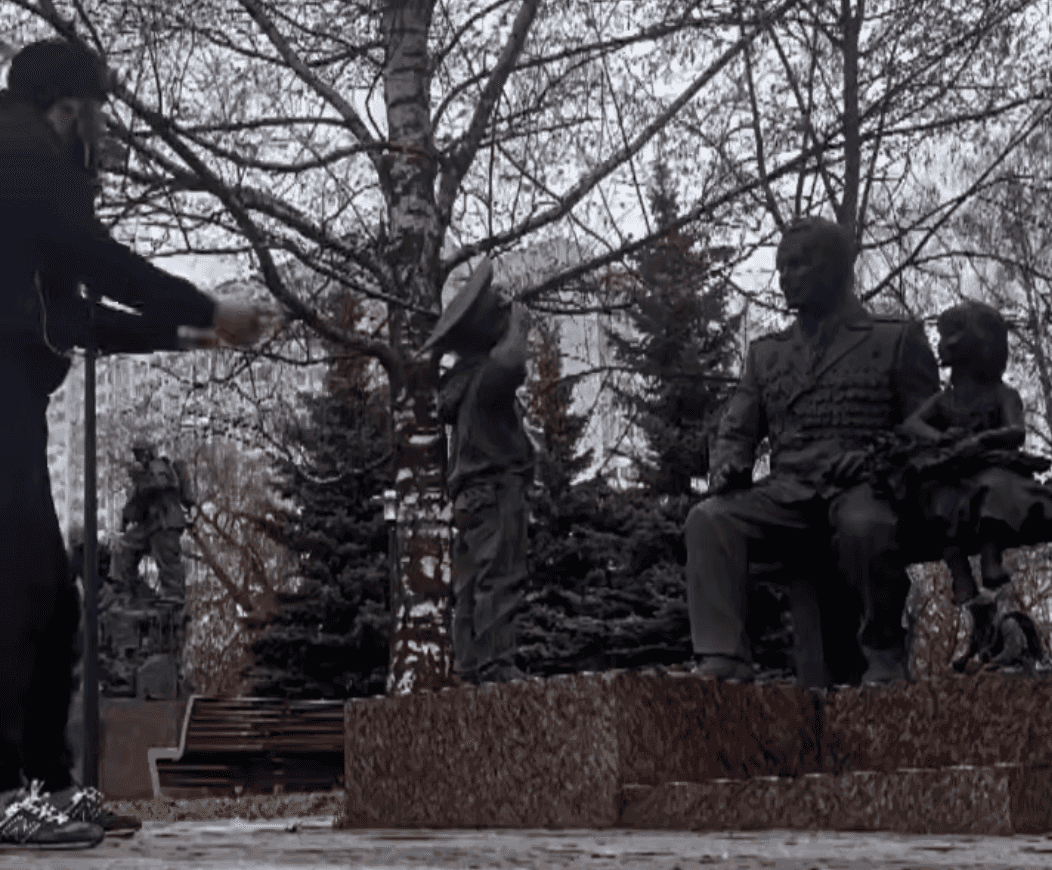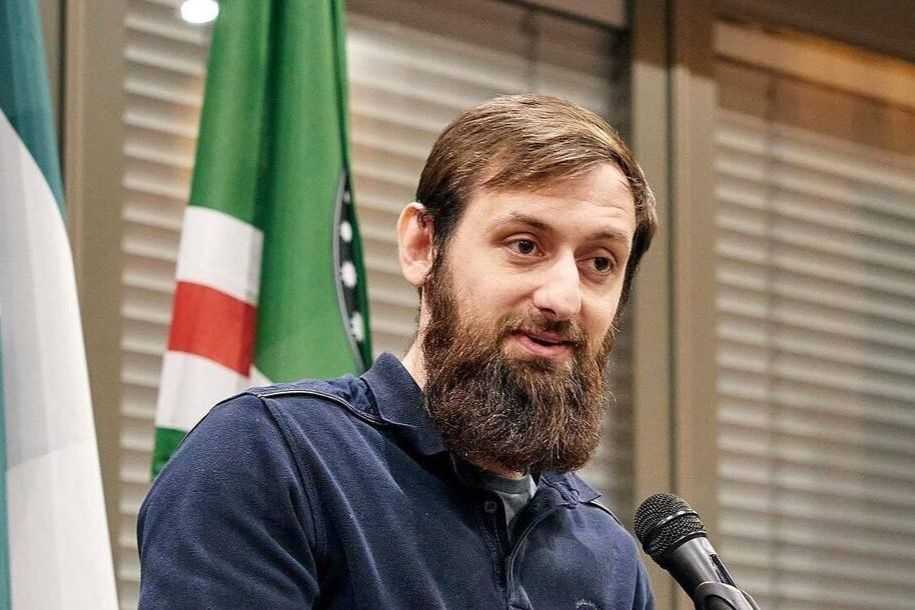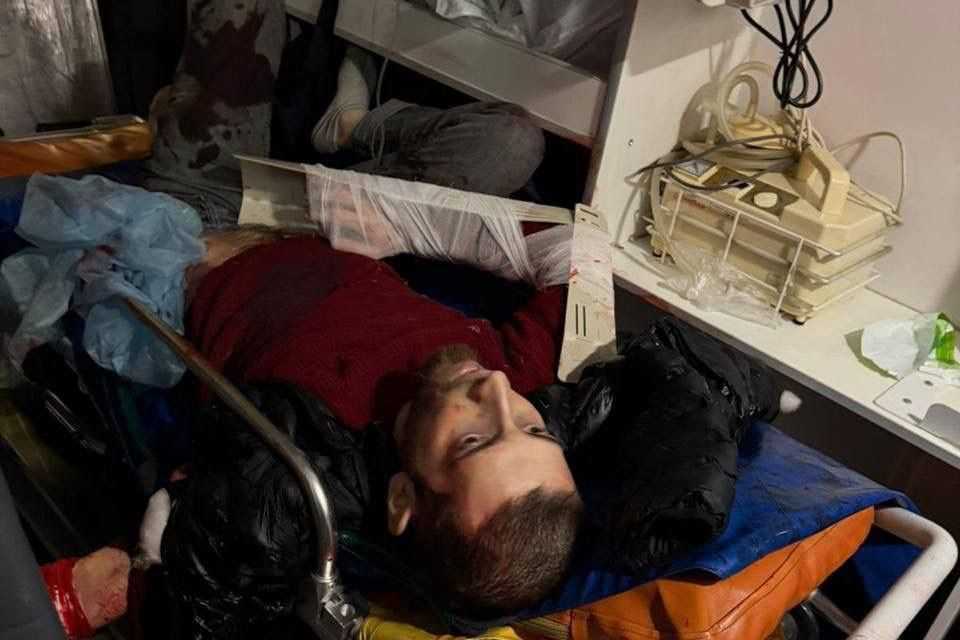
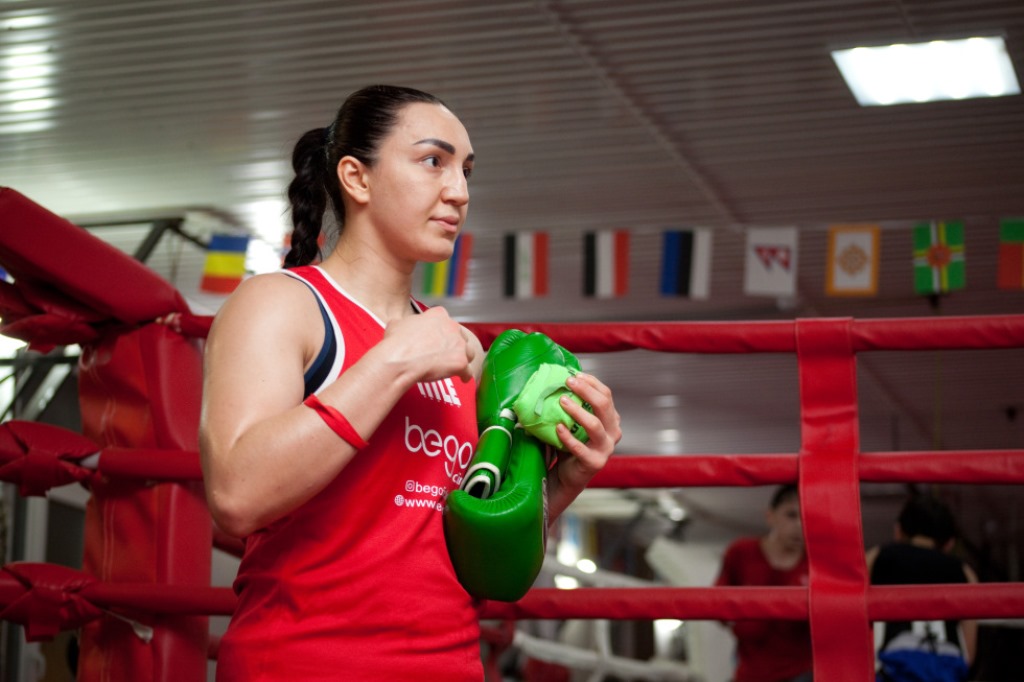
When Patima Ayshalova came to the boxing gym, she was told, ‘I do not train girls’. One year later, she was one of Daghestan’s top boxers and had earned the title Master of Sport.
‘While my dad was alive, at night, he and my uncle used to watch fights on the telly. It was still black-and-white back then, they would connect the antenna to it and watch, meanwhile I thought: how they can watch this and when it is going to end? Later, I didn’t even understand how I, myself, started watching films about sports, films about martial arts.’
‘My dad died when I was nine years old. But even before that, he wasn’t with us long. I turned two and he went to prison, they let him out when I was six. I really didn’t live with him long.’
‘Until sixth grade, I studied in Stavropol Krai while staying at my grandma’s. My mom now lives and works in a village 60 kilometers away from Stavropol.’
‘I remember, back in kindergarten, someone insulted me so I complained to my grand dad. He replied, “You complain one more time, I’ll beat you. Go and beat them up yourself”. I would get into fights until the second grade.’
‘During my school years in Kizlyar I got into a fight with a boy. He started it, he didn’t like my appearance, you know? The girls in our school covered their heads, wore skirts. But I wore what I wanted: jeans, a shirt, like in American movies. And my hairstyle was out of the ordinary: loose hair and long bangs — I was shy about how I looked and tried to cover up my face. And that, he just kept pestering me. In that fight, I injured my elbow, but I didn’t give up. After, some woman rushed to separate us and scolded me for hitting the boy, even though he was older and bigger than me.’
‘I called every day’
‘My mother considered my passion for fighting abnormal, but when I turned 17 and a half, she and her sisters moved to the village, and I began to live on my own. The first thing I did was enrolled in the Kizlyar kickboxing school. When I first came to the gym I was very shy, I didn’t think I knew how to do anything’.
‘I didn’t train long, half a month, I worked as a waitress in a family-run cafe at the same time. It was five days on, five days off. I would work for five days and then rest for another five days. I missed five days for training, and for athletes this is a very large gap. The boys were also not used to having a girl around, they’d needle me, “Oh, don’t hit so hard, [you will break the punching bag]”. Some tried to ask me out, “If you won’t be friends with me, I’ll ask that you not be allowed to train here anymore”.’
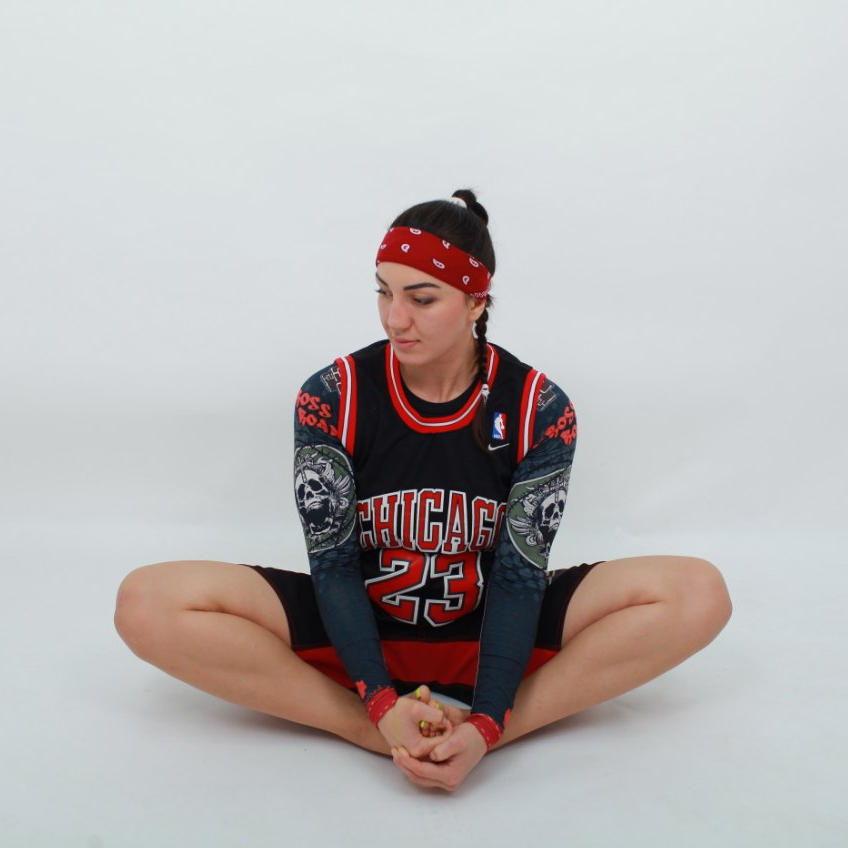
‘I stopped going to training, I didn’t like this attitude. But then I decided that when I turn eighteen, I’ll start training again — this time in another city. In 2012, when I was visiting my mother in Stavropol I saw an ad for a Kickboxing School at a bus stop.’
‘I moved, found housing, work, and a month later signed up for training. I’d train in the morning and work in the evening.’
‘In May, a Thai boxing club opened near to where I worked. I called, said I wanted to join, and asked if they had classes in the morning. “We will have them from September”, they replied. I waited until September, and then I would call them every day.’
‘I remember this date perfectly, September 23, 2013, the day I came to the Thai boxing gym, the day I became an athlete. Two months later, I managed to compete and win. I surprised myself, and I couldn’t believe it, I thought that they felt sorry for me because I was new, and just gave me the victory.’
‘I’d train real hard for competitions — two training sessions a day. When I started having problems with work, I switched to the night shift. I didn’t care, I was excited, I wanted to compete. I finished training at nine in the evening, then worked from 11 at night till 9 in the morning. I would come back home in the morning, take a shower, eat and go to bed. I woke up again at four.’
‘You are a woman, you won’t be able to’
In 2015, I made a suggestion to the kickboxing coach that we make a morning group for the kids. He did not want to work in the morning, so I said: “Let me try”. He said, “you are a woman, you won’t be able to”, but I insisted.’
I started recruiting for the group, I had 10 children — girls and boys. One mother was communing with three children from Mikhaylovsk. She sat and waited for them, and then decided to participate in the classes too, “What’s the difference, I still wait for them, and physical education will be good for me”. Three other mothers also began to learn with their children. I began to train in them evening, sometimes I replaced the coach.’
‘I liked my work. It did not bring a lot of money, but I could rent a room for myself.’
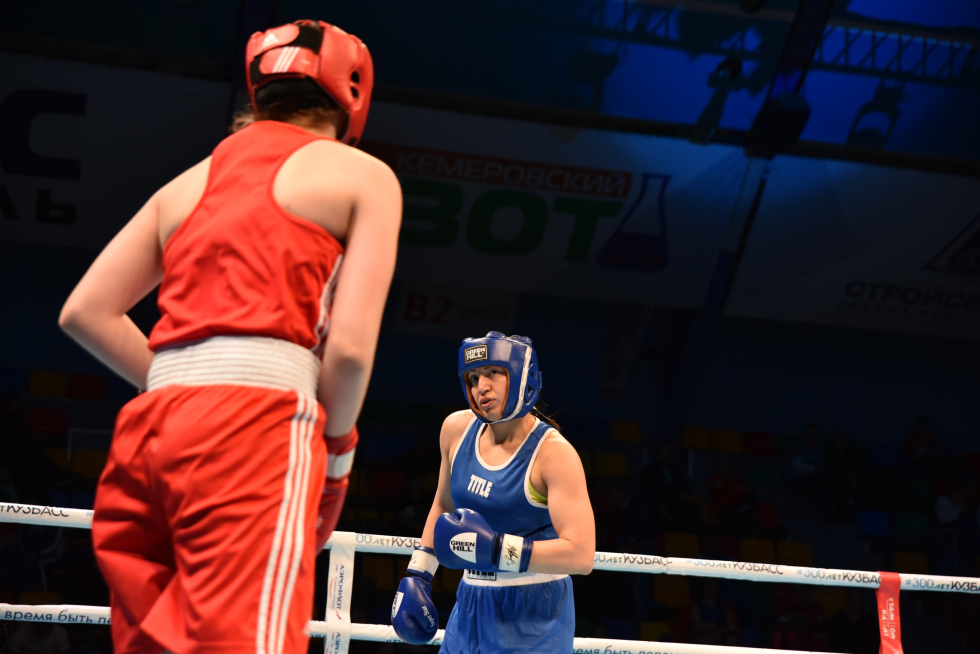
‘When I worked as a waitress, I could afford new clothes. But then the period began in which training took precedence. I now wear the clothes that I bought six years ago. But the important thing is that I have a place to live, and that’s it.’
‘It really helped that my mother had a cow, birds, rabbits, a big garden back in the village. Every weekend I tried to go there, work in the garden, clean up the shed. This allowed me to save a lot on food — I took eggs, milk, dairy, and vegetables from my mother.’
‘I didn’t have fun, I didn’t go out, I didn’t go shopping. I’m still in the same situation, though I earn extra money as a trainer.’
‘I can’t explain why, but while physically I was there, in Stavropol, my soul was always here [in Daghestan].’
‘At the North Caucasus championships, for example, there is the Stavropol Krai team and the Daghestan team, and I think to myself, ‘These are my compatriots, and I am fighting for another region. I want to fight for the national team of Daghestan!’
‘In my last Russian kickboxing championship in 2018, I already knew that I would win it, and would return home [to Daghestan].’
‘Boxing or mixed martial arts’
‘I didn’t go to boxing first, because I didn’t like to strike with my hands, I preferred to kick. But I don’t regret that I started boxing.’
‘When I still did Thai boxing in 2016, I was made an offered to replace a girl in a boxing match. My first Russian kickboxing championship was scheduled for five days earlier, and I needed to pay out of my pocket, with money that I didn’t have.’
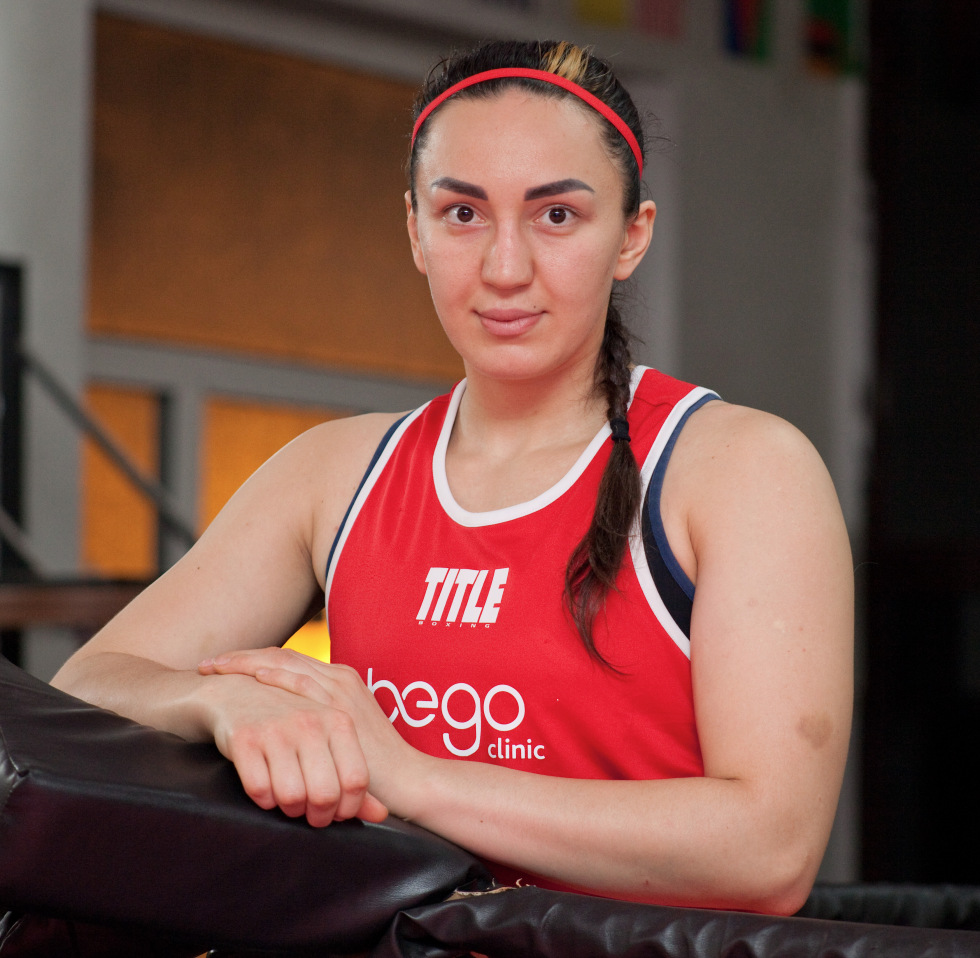
‘The fight I was offered was to take place under boxing rules, and the other girl [had the title of] Master of Sport, so all that was needed of me was not to lose by knockout. After the fight, I got ₽40,000 ($650), and I needed exactly ₽38,000 ($615) for the trip. After that, boxing gradually began to attract me as a sport, and I realised that I want to fight professionally, not amateur, not olympic, but professional boxing with which I could earn money.’
‘I had a choice — either boxing or mixed martial arts (MMA). To become do anything in boxing, you need at least two years of experience. Knowing that, I chose MMA two years ago. I had all the skills needed, I just hadn’t trained in wrestling before. I started to train but soon understood that it wasn’t my thing, I didn’t like wrestling. One day,I was offered to participate in boxing training. From that day, I felt a fire inside me. I train exclusively in boxing only.’
‘I don’t train girls’
‘The coach told me, “I don’t train girls”. I replied, “I’m not a girl, I’m an athlete, same as anyone”. And I began to train. He seemed not to pay any attention to me — but probably he was watching, and watching carefully. This one time, he held a training fight [with me], the Daghestan championship was to take place four days later, and he prepared me for it in literally a week. I won. I thought he didn’t even know my name, but I heard him calling out to me from the crowd, with fighting advice.’
‘With him [the coach] we have a tandem, he understands me. Right now, and I mean no offence to my parents, he is a parent for me. He is a person who is interested in me not only as an athlete, but also as a human being, he worries about me — that is the kind of person my coach is.’
‘Once he raised his voice at me — three weeks ago. It was my fault. After our last tournament was over, I showed up for training five or six times in three months. I had a period of depression, quit one of my jobs, didn’t have any students. I didn’t even have the money for public transport, but I was too ashamed to admit it so I didn’t go to training. When I explained everything to him, he said to me, “Why did you stay silent?” He bought all my equipment for me, everything that I wear, down to the shoes.’
‘He invests his time in me, his well-being.’
‘I’m quite jealous, though I don’t show it. If the new girl comes [comes to train] I know, I’ll be better than her. I will work harder so I can make my couch proud.’
Master of Sport
‘My coach sent me to the Daghestan championship, I won by points and entered the team of the North Caucasus Federal District. I won again, and went on to the Russian championship. Unfortunately, I lost in one match. I didn’t have enough experience, kickboxing has a different trajectory in one’s strikes.’
‘Twenty-eight countries were present, I think, at the Magomed-Salam Umakhanov Memorial International Tournament. There were seven people in my weight class. In the first of the three fights, I faced a girl from Stavropol, I wanted to win so badly, and I would be ashamed to lose. She was very tall and she was left-handed. How to fight a leftie? I boxed against her, I even liked it. Second fight, it was a girl from Belarus. Thicker, bigger than me. I won. In the final, I was so sure that I would win, because physically, I was more powerful than my opponent. I lost by one point. She has many years of experience, and I had been boxing for just six months.’
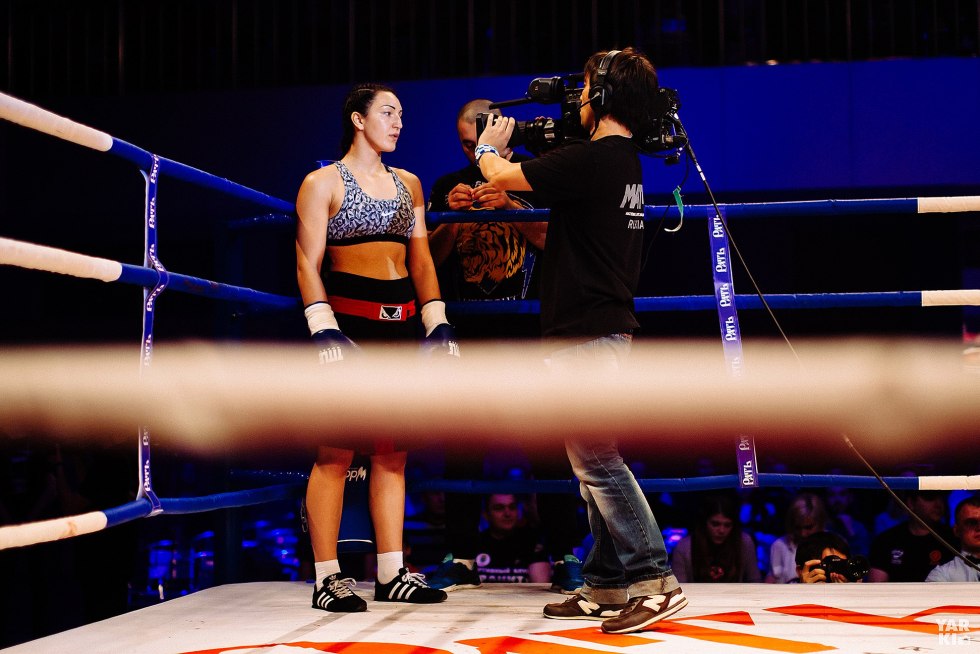
‘The next day, I learned that I had become a Master of Sport. My coach posted it on Instagram with my photo and victories. I called him, “What do you mean?” He told me, “You had three fights at the international level, you won. You have fulfilled the requirement for the title of Master”.’
‘A Master of Sport in boxing — that is a big deal. I could never have thought that I would receive a Master in boxing, and especially after just six months. I started to understand — that which I do not really believe in, I can still succeed in.’
‘The third of December was exactly one year since I began boxing, I’m 26 now. I box more for myself, this is my future, this is my bread.’
‘I can train only girls and children’
‘I never loved to box with girls during training, although this is useful for fighting. When a girl comes to the gym, I think, what if I hit hard now, what if she feels pain? I have the feeling that I am a boy, and that she is a girl. But I would not face a boy in the ring.’
‘I can train only girls and children. A guy will not come to me, “What, I will have to obey a girl? She knows better than me?”’
‘Yes, he is physically stronger, he is more powerful, no matter how healthy and strong I am. By nature, a woman is still physically weaker than a man.’
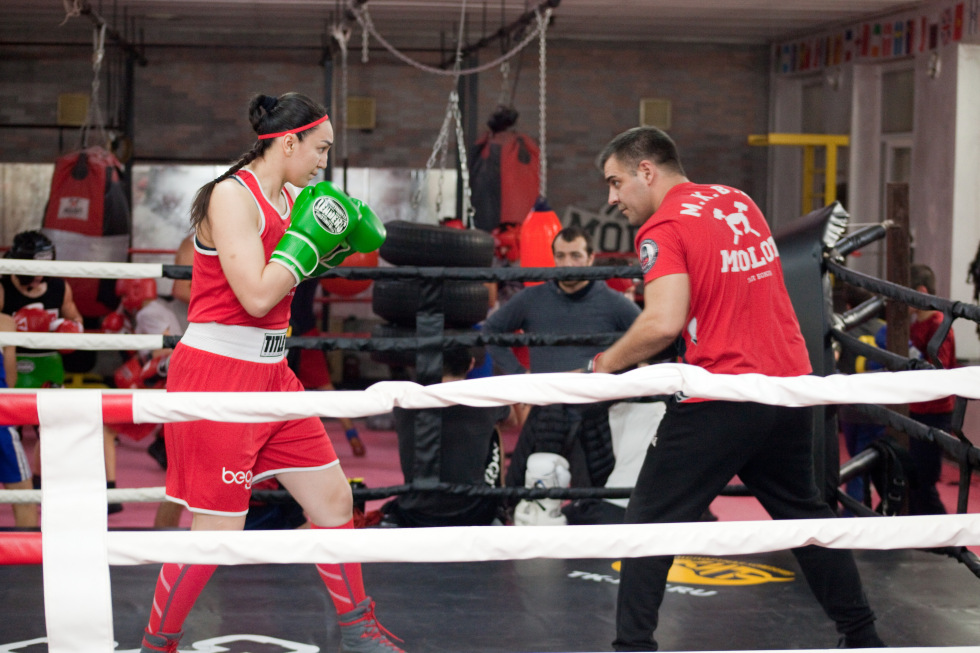
‘Now I train in the evenings in a fitness-gym. My direction is fitness with elements of kickboxing. There are girls who want to learn, but are embarrassed by the presence of men in the gym; for some, their parents do not allow them to train with the boys. In total, I train six people.’
‘Ultimatum’
‘In life, I have no aggression, no desire to beat someone up. When I see that my opponent is bleeding, I feel pity, and then I understand — hey, you idiot, you’ll get beat now, you’ll lose! Although many people think, ‘Oh, your boyfriend will not be lucky, you will beat him’. But in my life [outside of sport] I don’t have this, that I dominate others or that a man has to obey me.’
‘A man must, first of all, be a man. It is important that I feel myself to be a girl when I’m with him. If I sincerely love a person and it is mutual, I will really try for him. But not in a way that I do everything for him. We will both motivate each other. I won’t let anyone wipe their feet on me, or use me.’
‘I will have a husband, a family. I will be an obedient wife. But if someone gives me an ultimatum — not to do boxing, it’s unlikely I’ll agree to this. Because of this, perhaps, I don’t get married. There were those who proposed, but the condition is that I should stop training and just sit at home. Sorry, but no. I cannot do that. I do not want to.’
 This article is a partner post written by Patimat Amirbekova. The original version first appeared on Daptar, on 18 December 2019.
This article is a partner post written by Patimat Amirbekova. The original version first appeared on Daptar, on 18 December 2019.


